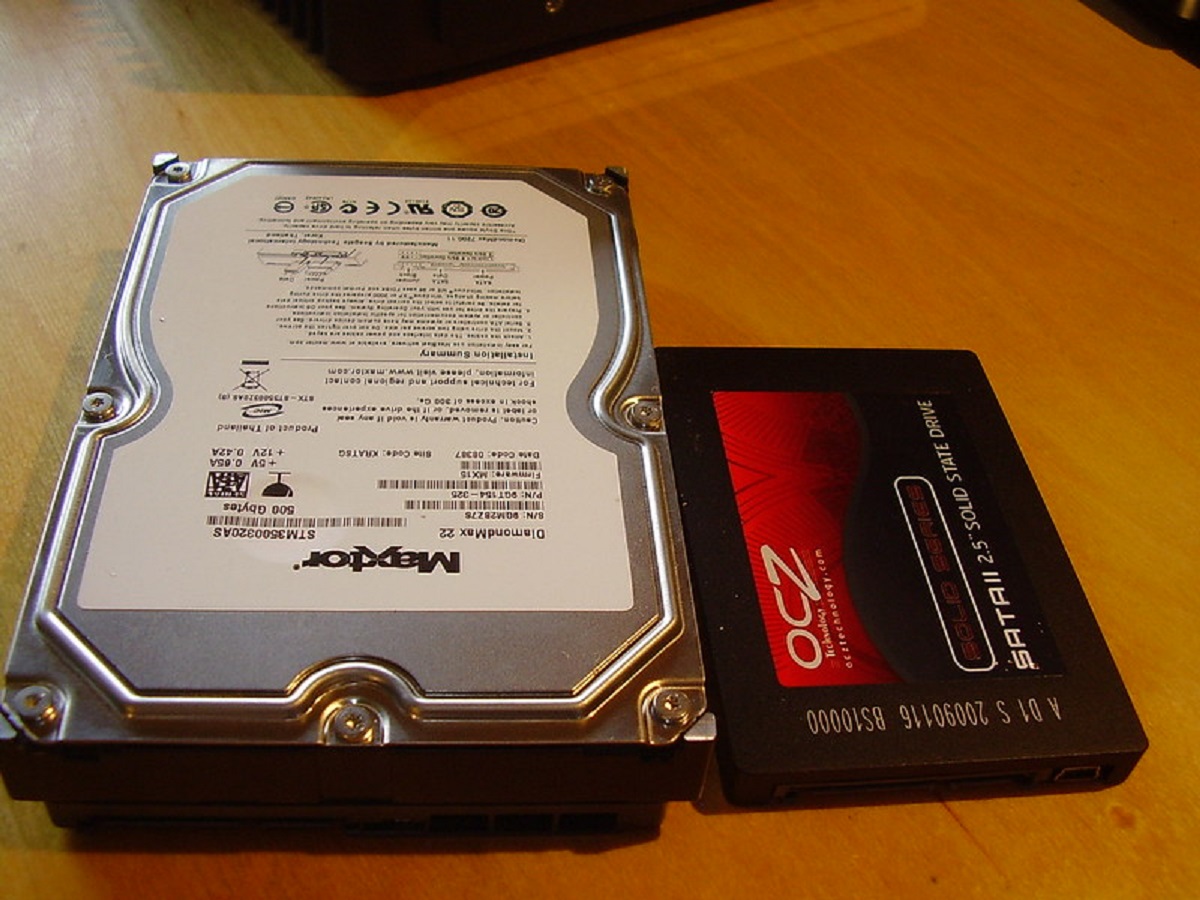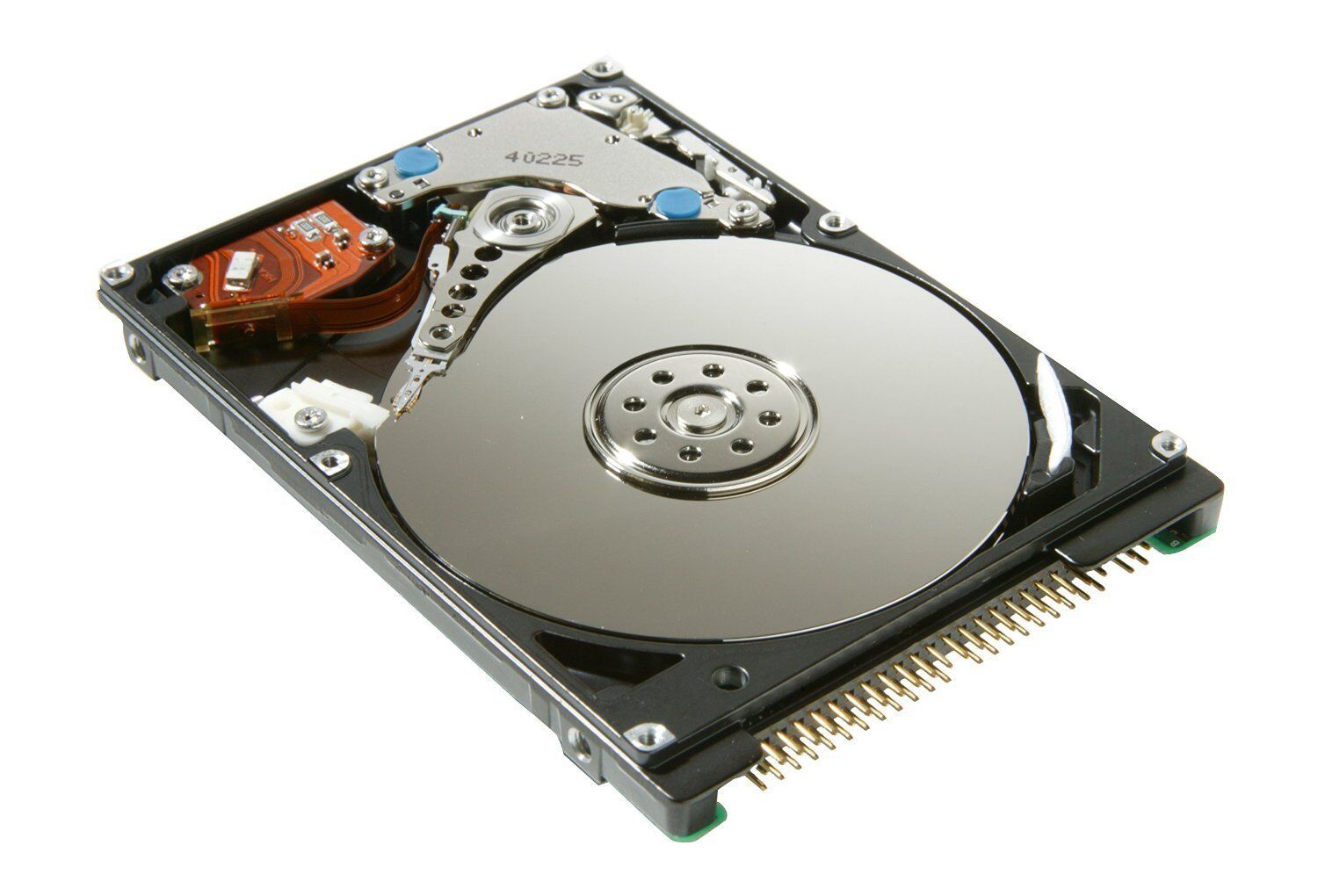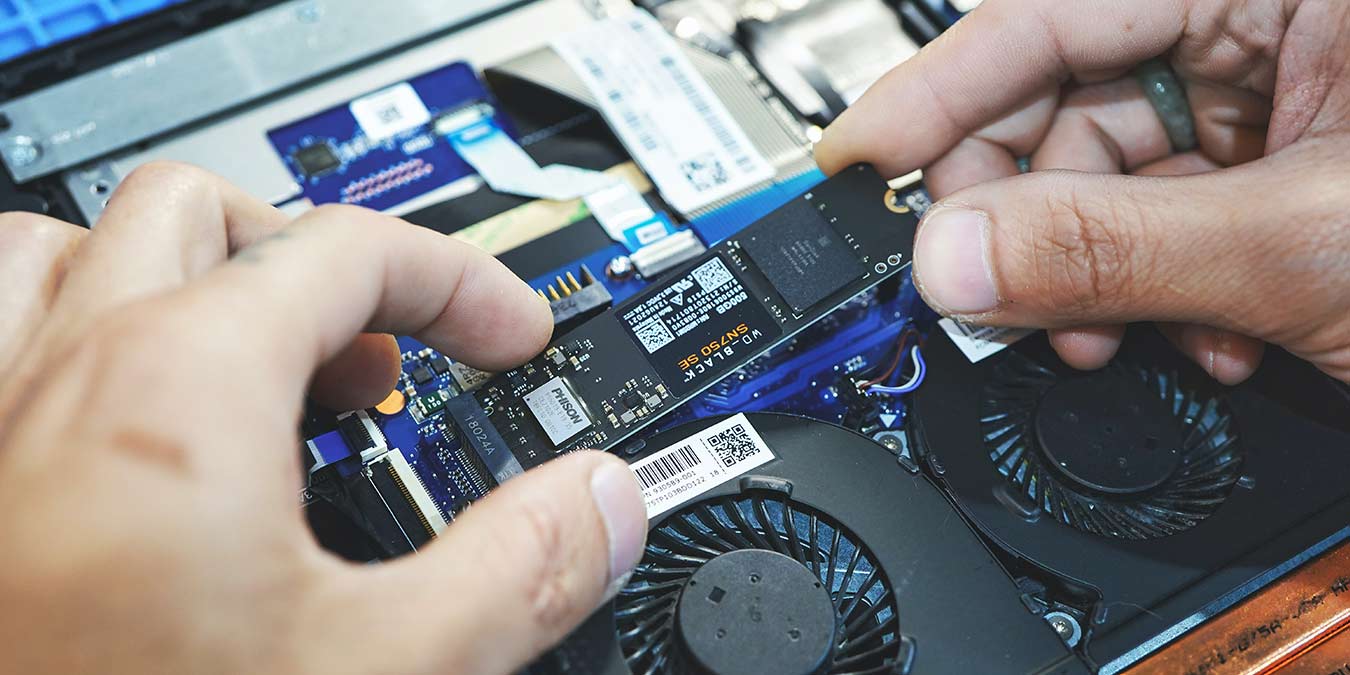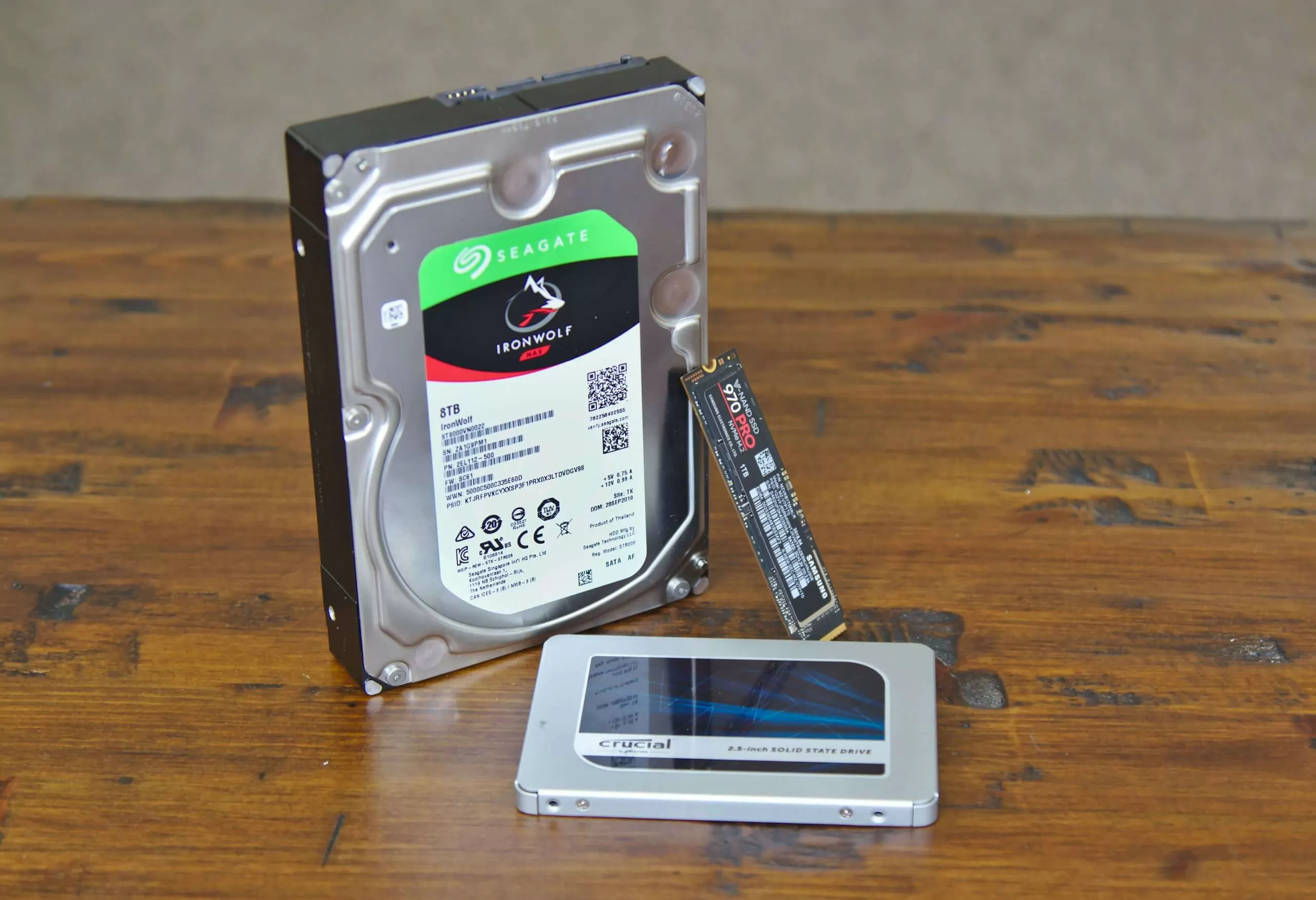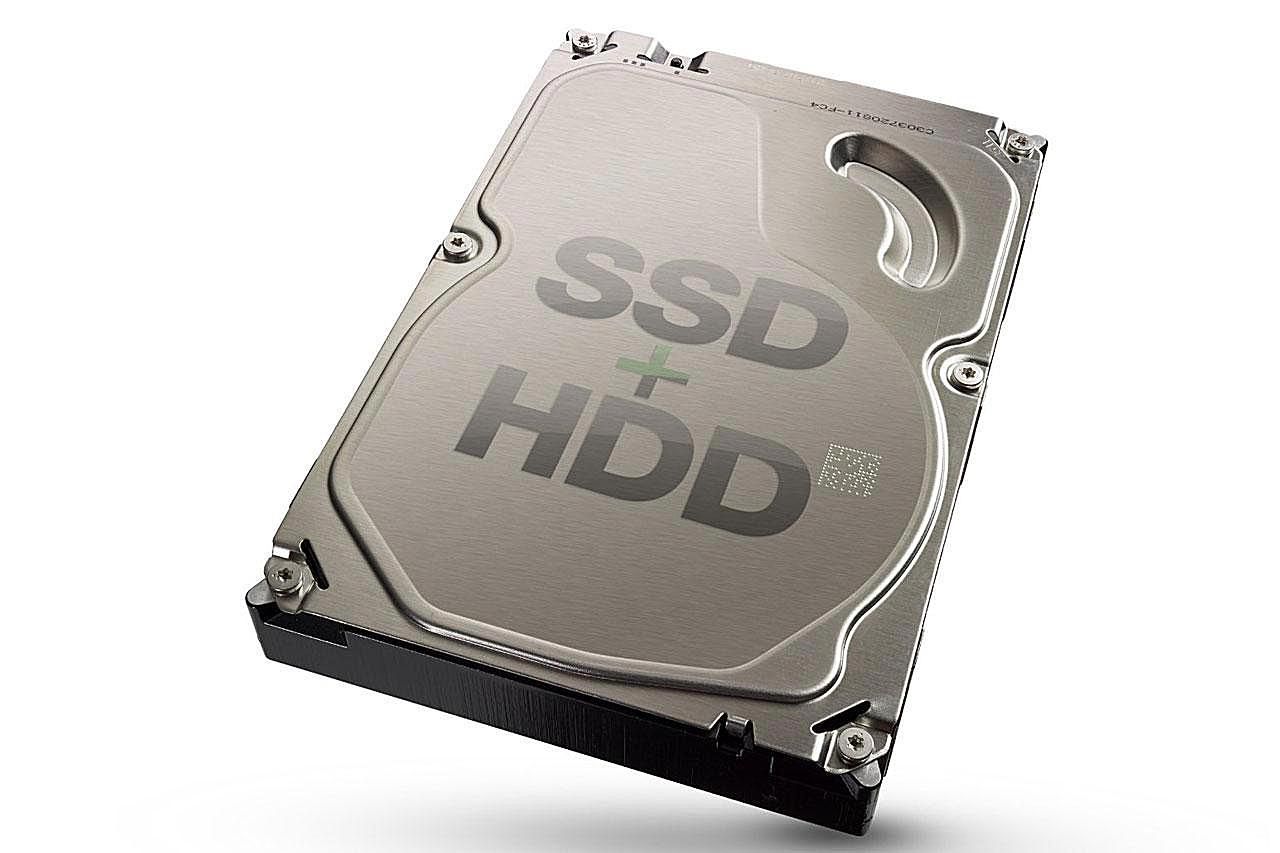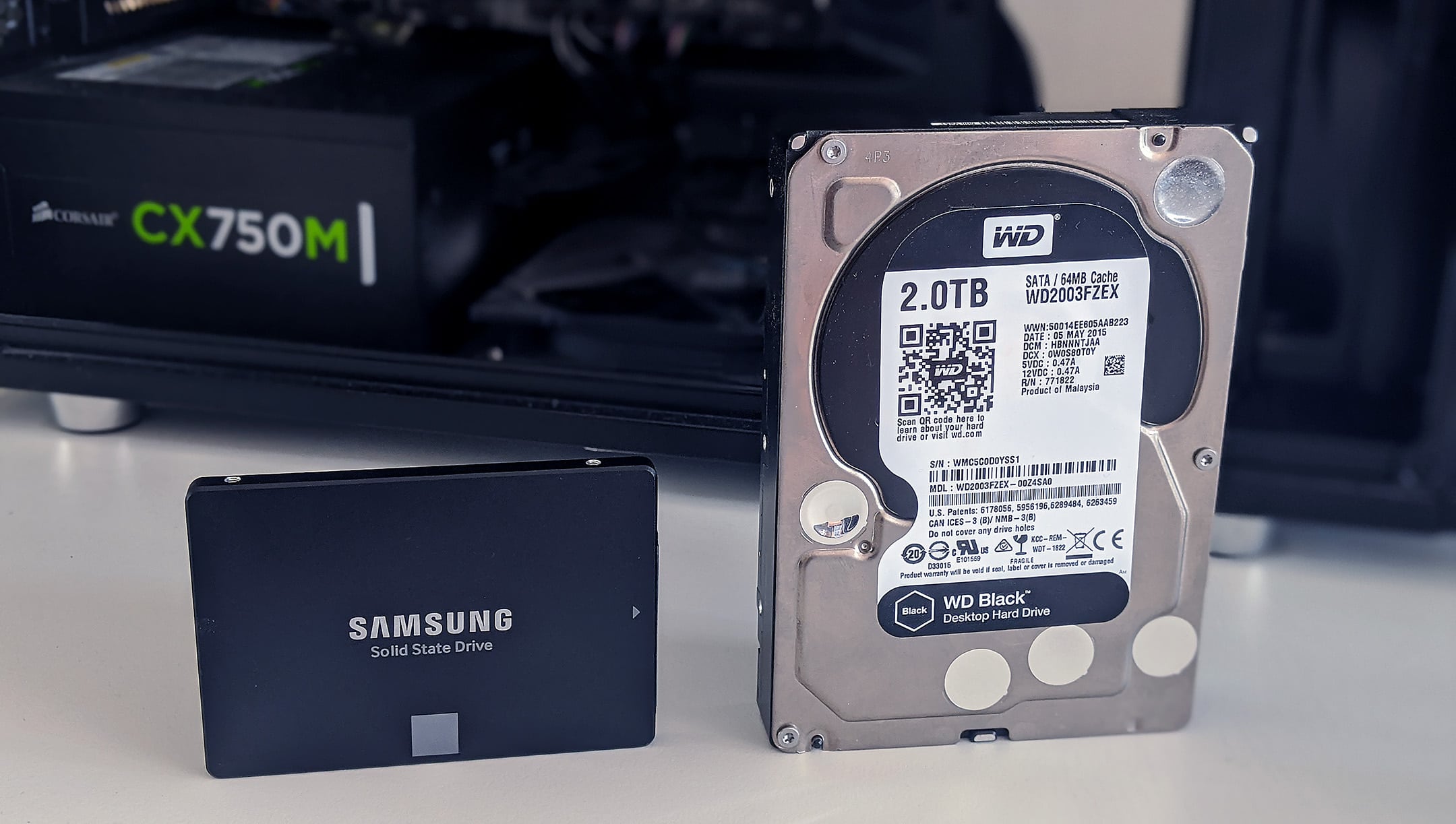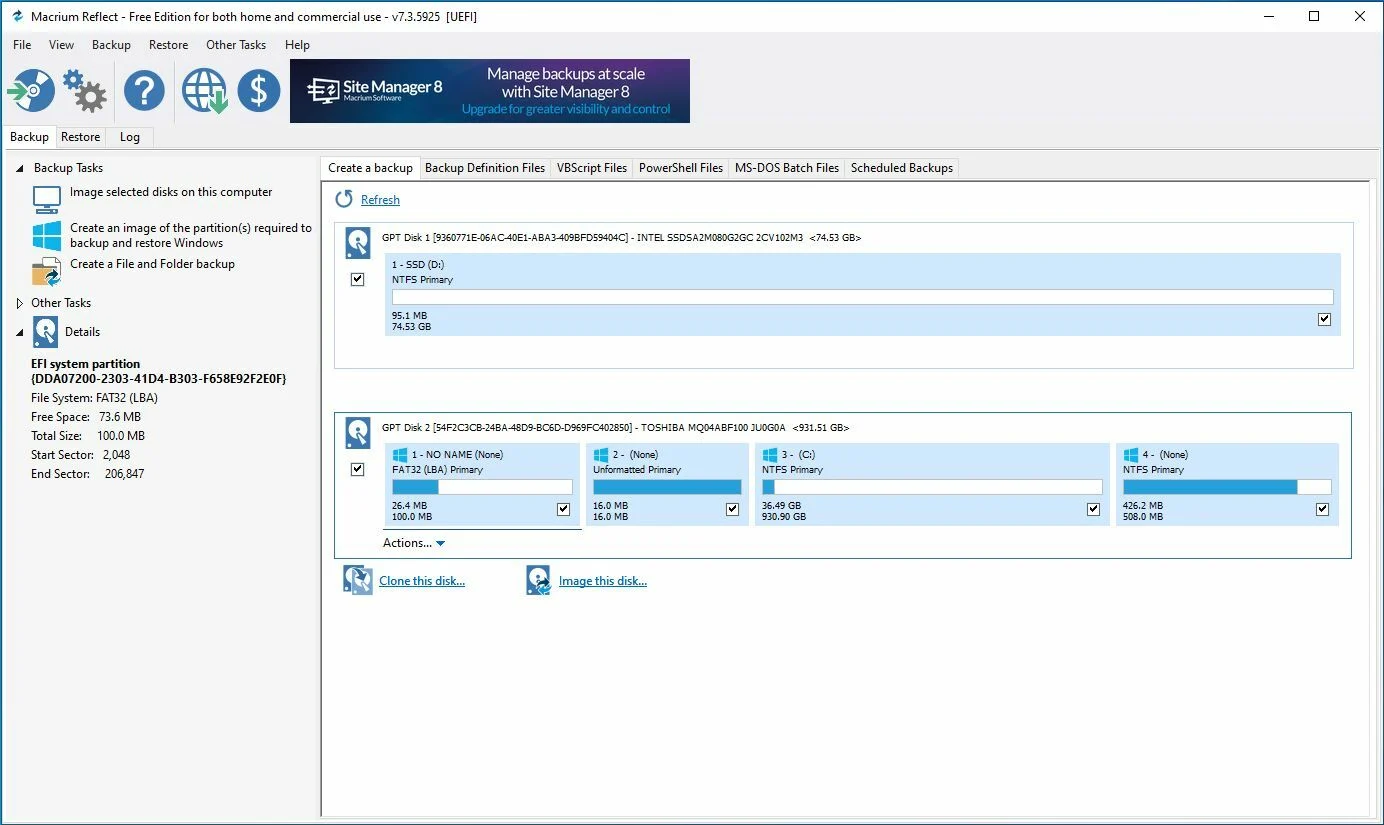Introduction
When it comes to choosing storage for your computer, two options commonly come to mind: Solid State Drives (SSDs) and Hard Disk Drives (HDDs). These two types of storage drives have been competing for dominance in the market, each with their own set of advantages and disadvantages. Understanding the differences between SSDs and HDDs can help you make an informed decision about which option is better suited for your needs.
SSDs, as the name suggests, use solid-state memory to store data. They do not have any moving parts, making them more resistant to shock and vibration compared to HDDs, which consist of spinning magnetic disks and read/write heads. This fundamental difference between the two drives leads to significant variations in terms of performance, reliability, storage capacity, cost, power consumption, and other factors.
In this article, we will explore the differences between SSDs and HDDs and help you determine which one is a better fit for your specific needs.
SSD (Solid State Drive)
An SSD is a type of storage drive that uses flash memory to store data. Unlike HDDs, which rely on spinning disks and read/write heads to access and store information, SSDs have no moving parts. This design allows SSDs to deliver faster and more consistent performance compared to HDDs.
One of the major advantages of SSDs is their incredible speed. Since SSDs have no mechanical components, they offer near-instantaneous access times, resulting in significantly faster boot times and application loading. This speed advantage is particularly noticeable when it comes to tasks that involve reading and writing large files, such as video editing or running resource-intensive software.
Another key factor that sets SSDs apart is their reliability and durability. With no spinning disks or moving parts, there is less risk of mechanical failure or data loss due to physical damage. This makes SSDs a more reliable choice, especially for portable devices like laptops that are frequently moved or subjected to bumps and shocks.
SSDs also boast low power consumption, thanks to their lack of moving parts. Unlike HDDs that require continuous spinning of their disks, SSDs consume significantly less energy, which results in longer battery life for laptops and less heat generation. This advantage is especially beneficial for mobile devices where power efficiency is crucial.
When it comes to noise, SSDs have the upper hand once again. Since there are no moving parts or spinning disks, SSDs operate silently, which can be a welcome relief in quiet environments or for individuals who prefer a noise-free computing experience.
While SSDs offer numerous advantages, there are a few limitations to consider. The most significant drawback is their cost per gigabyte of storage. SSDs tend to be more expensive than HDDs, especially when it comes to higher storage capacities. However, the price gap has narrowed in recent years due to advancements in technology.
In terms of storage capacity, SSDs traditionally had lower capacities compared to HDDs. However, as technology has progressed, the availability of larger capacity SSDs has increased. Today, it is common to find SSDs with capacities ranging from 256GB to even multiple terabytes.
Overall, SSDs are a perfect choice for users who prioritize speed, reliability, and power efficiency. The higher cost per gigabyte is offset by the performance benefits gained from fast boot times, speedy read/write operations, and durability. Whether you are a gamer, a creative professional, or someone who values quick and responsive computing, an SSD will greatly enhance your overall user experience.
HDD (Hard Disk Drive)
HDDs, or Hard Disk Drives, have long been the staple of computer storage. These drives rely on spinning magnetic disks coated with a magnetic material to store and retrieve data. While they may not match the speed and performance of SSDs, HDDs do have their own advantages that make them a viable choice for many users.
One of the key advantages of HDDs is their cost-effectiveness. HDDs offer a larger amount of storage capacity at a lower cost compared to SSDs. This makes them an appealing choice for users who require substantial storage space, such as those who work with large video or audio files, or who have extensive media libraries.
HDDs also excel in terms of storage capacity. It is common to find HDDs with capacities ranging from terabytes to multiple terabytes of storage. This allows users to store a vast amount of data, including documents, photos, videos, and applications, without worrying about running out of space.
Another advantage of HDDs is their compatibility. These drives have been around for decades and have established widespread compatibility with various devices and operating systems. Whether you have a desktop computer, a laptop, or a gaming console, it is highly likely that it will be compatible with an HDD.
In terms of longevity, HDDs have proven to have a reasonably long lifespan when properly maintained. Though they have moving parts, modern HDDs are designed to withstand everyday use. Regular backups and cautious handling can help ensure that your data remains safe and accessible even with an HDD.
However, HDDs also have their limitations. One significant drawback is their performance compared to SSDs. Since HDDs rely on spinning disks and mechanical read/write heads, they are slower when it comes to accessing and transferring data. This results in longer boot times and slower loading of applications and files.
Another factor to consider is power consumption. HDDs tend to consume more power compared to SSDs because their spinning disks require continuous power to operate. This can impact battery life in laptops and increase electricity bills for desktop users.
Noise is another consideration with HDDs. The spinning disks and moving read/write heads generate noise, which can be noticeable in quiet environments. While the noise level might not bother everyone, those who prefer a quieter computing experience may find HDDs to be more intrusive.
Overall, HDDs are a cost-effective storage solution that excels in providing ample storage capacity for users who require large amounts of space and are less concerned about the need for lightning-fast speeds. They are suitable for tasks such as data backup, archiving, and media storage. If you prioritize affordability and capacity over performance, an HDD is a reliable and economical choice.
Performance
When it comes to performance, SSDs have a clear advantage over HDDs. The lack of moving parts in SSDs allows them to deliver significantly faster data transfer and access times compared to HDDs. This translates into faster boot times, quicker application loading, and overall snappier system responsiveness.
SSDs can achieve read and write speeds that are multiple times faster than HDDs, especially when dealing with large files or performing tasks like video editing or gaming. The faster performance of SSDs dramatically reduces lag and allows for more seamless multitasking and smoother file transfers.
On the other hand, HDDs are known for their slower performance compared to SSDs. The mechanical nature of HDDs, with spinning disks and read/write heads, leads to slower read and write speeds. This often results in longer boot times and slower application launch times, especially when dealing with more demanding tasks.
However, it is worth noting that HDDs still offer sufficient performance for everyday tasks like web browsing, document editing, and basic multimedia playback. If your computing needs are focused on general productivity and you don’t require intensive data processing or fast loading times, an HDD can still get the job done.
When it comes to gaming, SSDs offer a noticeable advantage. Games stored on an SSD tend to load faster, reducing waiting times and allowing for a smoother gaming experience. In online multiplayer games, SSDs can give players an edge by minimizing lag and ensuring quick responsiveness.
In contrast, HDDs may cause longer load times and slower data retrieval during gameplay, resulting in a less optimized gaming experience. This is particularly noticeable in open-world games or games with large file sizes that require frequent data loading.
In summary, SSDs outperform HDDs in terms of speed and overall system responsiveness. They deliver faster boot times, quicker application launching, and snappier data transfer and access. However, HDDs still provide adequate performance for everyday tasks and can be suitable for users who prioritize storage capacity and affordability over sheer speed.
Reliability and Durability
When it comes to reliability and durability, SSDs have a distinct advantage over HDDs. The absence of moving parts in SSDs makes them less prone to mechanical failures, such as disk crashes or head misalignment, which are common issues with HDDs. This inherent reliability of SSDs can provide peace of mind, knowing that your data is less likely to be lost due to hardware failures.
Furthermore, due to their solid-state nature, SSDs are more resistant to physical damage caused by bumps, drops, or vibrations. This makes them a preferred choice for portable devices like laptops or external drives that may be frequently moved or subjected to rough handling. SSDs can handle these situations more effectively without the risk of mechanical components being damaged or dislodged.
In contrast, HDDs are susceptible to mechanical failures and physical damage. Due to the spinning disks and moving read/write heads, they are more prone to wear and tear over time. Sudden impacts or drops can cause these components to become misaligned, leading to data loss or complete drive failure.
However, it is important to note that both SSDs and HDDs are vulnerable to data loss in the event of power failures or sudden shutdowns. In such cases, it is recommended to have proper backup systems and protocols in place to ensure the safety and integrity of your valuable data, regardless of the type of drive you use.
Overall, SSDs offer a higher level of reliability and durability compared to HDDs, primarily due to their lack of moving parts. They are less prone to mechanical failures and physical damage, making them a more reliable choice for storing and accessing your data. Whether you are a business professional, a creative individual, or a casual user, the enhanced reliability of SSDs can provide added confidence in the safety and longevity of your data.
Storage Capacity
When it comes to storage capacity, HDDs have historically offered a greater advantage over SSDs. HDDs can provide higher storage capacities at more affordable prices compared to SSDs, making them an attractive choice for users who require a large amount of storage space.
Modern HDDs are available in a wide range of capacities, ranging from a few hundred gigabytes (GB) to multiple terabytes (TB). This allows users to store a vast amount of data, including documents, photos, videos, and applications, without worrying about running out of space.
SSDs, on the other hand, traditionally offered lower capacities compared to HDDs. These drives were initially more common in smaller storage sizes, such as 128GB or 256GB. However, advancements in technology have led to the availability of larger capacity SSDs.
Today, it is not uncommon to find SSDs with capacities ranging from 512GB to several terabytes. However, it’s important to note that as the storage capacity of SSDs increases, so does the cost. Consequently, SSDs with larger capacities tend to be more expensive compared to smaller sizes, which may be a factor to consider when making a decision.
It is worth mentioning that users with high storage requirements and a limited budget may opt for a combination of both SSDs and HDDs. This approach involves using an SSD for the operating system and frequently accessed applications to benefit from speed, while using an HDD for storing larger files, such as media libraries or archives, to take advantage of the larger capacity at a lower cost.
Furthermore, with the growing popularity of cloud storage services, users have the additional option of offloading some data to cloud platforms. This allows for increased storage capacity without the need for physical drives, although it comes with considerations of data security and internet connectivity.
In summary, HDDs are known for their larger storage capacities at more affordable prices. They provide ample space for storing large amounts of data, making them suitable for users with extensive multimedia collections or those who prioritize cost-effective storage options. SSDs, on the other hand, offer increasing storage capacities and faster performance but tend to be more expensive. Determining the ideal storage capacity ultimately depends on individual needs, budget considerations, and the balance between speed and quantity of data storage required.
Cost
When considering the cost factor, HDDs have a clear advantage over SSDs. HDDs offer significantly more storage capacity per dollar compared to SSDs, making them a more cost-effective option for users who require large amounts of storage space.
Historically, HDDs have been able to provide higher storage capacities at lower prices, making them popular among budget-conscious consumers. This advantage is particularly noticeable when comparing the cost per gigabyte of storage between HDDs and SSDs.
SSDs, on the other hand, have traditionally been more expensive, especially when it comes to higher storage capacities. The cost of flash memory used in SSDs has been decreasing over time, leading to more competitive prices. However, SSDs still tend to be pricier compared to HDDs, especially for larger storage options.
It’s important to note that while SSDs may have a higher upfront cost, they can offer other cost-saving benefits in the long run. For example, due to their lack of moving parts, SSDs are more power-efficient. The lower power consumption not only helps to prolong the battery life of laptops and mobile devices but can also result in reduced energy bills for desktop users.
Additionally, the increased speed and performance of SSDs can lead to improved productivity and time-saving benefits. Tasks such as booting up the system, launching applications, and reading/writing files are significantly faster on an SSD compared to an HDD. This increased efficiency and reduced wait times can translate into increased productivity and, potentially, cost savings in a professional setting.
Another factor to consider when it comes to cost is the reliability and durability of the storage option. While SSDs may have a higher initial cost, their solid-state design makes them more resistant to physical damage and less susceptible to mechanical failures compared to HDDs. This means that the risk of data loss and the associated costs of data recovery or drive replacement may be lower with SSDs.
Ultimately, when deciding between SSDs and HDDs based on cost, it is important to consider factors such as storage capacity requirements, budget constraints, and the overall value proposition. While HDDs offer a more cost-effective solution in terms of price per gigabyte, SSDs may provide long-term cost savings through power efficiency, increased productivity, and enhanced reliability.
Power Consumption
When it comes to power consumption, SSDs have a distinct advantage over HDDs. The lack of moving parts in SSDs allows them to consume significantly less power compared to their HDD counterparts.
HDDs require continuous power to keep their disks spinning and read/write heads moving. This constant power consumption can lead to higher energy usage, particularly in desktop computers that typically have multiple HDDs running simultaneously.
In contrast, SSDs use flash memory to store data, and therefore, they do not require any power to keep mechanical components in motion. This inherent power efficiency results in lower energy consumption, leading to several benefits.
First and foremost, low power consumption translates to longer battery life for laptops and other portable devices. SSD-equipped laptops can operate for extended periods without needing to be plugged in, making them ideal for users who are frequently on the move or rely on their devices for long periods away from power outlets.
In addition to longer battery life, SSDs generate less heat compared to HDDs. This reduced heat output contributes to a cooler and more energy-efficient system overall. In environments with limited airflow or where noise levels need to be kept to a minimum, SSDs can provide an advantage by producing less heat and requiring less cooling, resulting in a quieter and more comfortable computing experience.
Moreover, the lower power consumption of SSDs can also result in cost savings over time. With reduced energy usage, electricity bills can be lower, especially in scenarios where multiple devices or storage systems are involved, such as in data centers or large-scale server setups.
Despite their power efficiency, it is worth noting that SSDs still draw power during data read and write operations. However, these power spikes are relatively short-lived compared to the continuous energy consumption required by HDDs.
Overall, SSDs have a clear advantage in terms of power consumption. Their solid-state design, lack of moving parts, and low energy requirements make them an excellent choice for users looking to maximize battery life, reduce energy costs, and maintain a cooler and quieter computing environment.
Noise and Heat
When it comes to noise and heat, SSDs offer significant advantages over HDDs. The absence of moving parts in SSDs drastically reduces both noise generation and heat production, resulting in a quieter and cooler computing experience.
HDDs, with their spinning disks and moving read/write heads, generate noticeable noise during operation. The sound of the spinning disks and the movement of the read/write heads can be audible, especially in quiet environments or when the computer is under heavy use. This noise can be distracting and bothersome for those seeking a more peaceful and noise-free computing environment.
In contrast, SSDs, with their solid-state design, operate silently. Since there are no moving parts or spinning disks, SSDs produce no noise during normal operation. This makes them a preferred choice for users who value a noiseless computing experience, such as those working in quiet offices or individuals who need to concentrate on audio-related tasks.
Furthermore, the solid-state nature of SSDs also contributes to their ability to generate less heat compared to HDDs. HDDs, with their spinning disks and the friction generated by the read/write heads, can become warm during extended use. In desktop computers where multiple HDDs may be in operation, the accumulated heat can further contribute to overall system temperatures.
On the other hand, SSDs have lower heat output due to their lack of moving parts. The absence of spinning disks and mechanical components means that SSDs produce significantly less heat during operation. This not only helps in keeping temperatures lower but also contributes to improved system stability and reliability.
The reduced heat generation of SSDs also has practical implications for laptop users. Laptops equipped with SSDs tend to operate at lower temperatures, resulting in a more comfortable user experience. Cooler laptops have the advantage of reduced heat transfer to the user’s lap, improved battery life, and increased lifespan of internal components.
It is important to note, however, that under heavy and sustained workloads, both SSDs and HDDs can warm up to some extent. Factors such as the design of the laptop or computer case, airflow, and cooling mechanisms can also impact heat dissipation. Nevertheless, SSDs have a significant advantage in terms of reduced noise generation and heat output, making them the preferable choice for users who value a quiet and cool computing environment.
Conclusion
When deciding between SSDs and HDDs, it’s essential to consider your specific needs and priorities. SSDs offer several advantages over HDDs, including faster performance, increased reliability and durability, lower power consumption, and reduced noise and heat generation. These benefits make SSDs an excellent choice for users who prioritize speed, efficiency, and a noiseless computing experience.
On the other hand, HDDs still have their own merits, especially when it comes to cost-effectiveness and larger storage capacities. HDDs provide more storage space at a lower cost per gigabyte, making them suitable for users who require extensive storage without breaking the bank.
For optimal storage solutions, many users opt for a combination of SSDs and HDDs. This hybrid approach allows users to leverage the speed and performance benefits of an SSD for the operating system, frequently used applications, and tasks that require fast data access, while utilizing the larger storage capacities and cost-effectiveness of HDDs for less frequently accessed data or media storage.
In summary, if you value speed, reliability, power efficiency, and a quiet computing environment, an SSD is the way to go. However, if you require a large amount of storage space and are mindful of budget constraints, an HDD can still provide a viable and cost-effective storage solution.
Ultimately, the decision between SSDs and HDDs depends on your individual needs, preferences, and budget. Considering the factors discussed in this article, you can make an informed decision and choose the storage option that best aligns with your requirements, ensuring an optimal computing experience.









